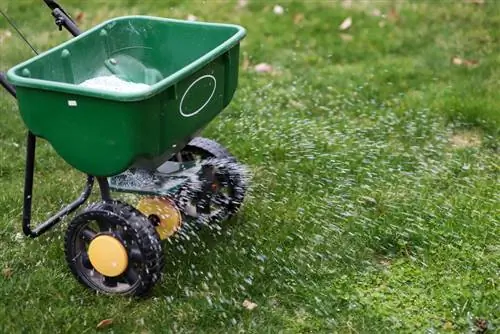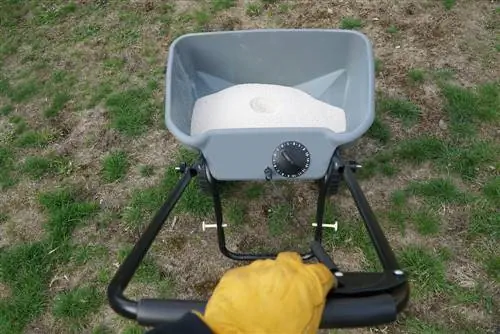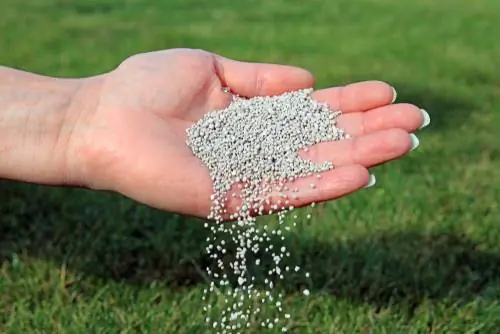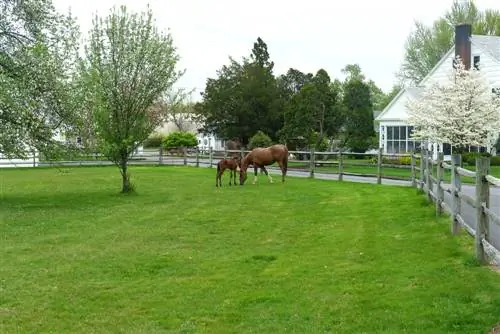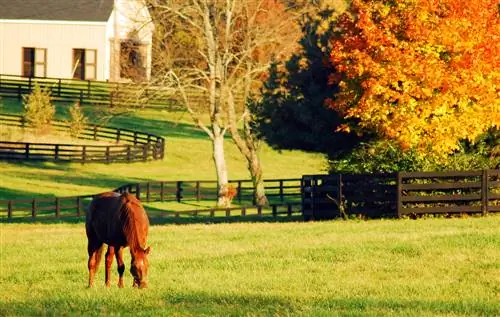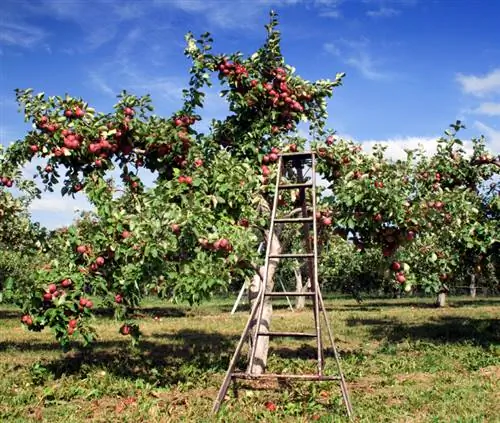- Author admin leonars@hobbygardeners.com.
- Public 2023-12-16 16:46.
- Last modified 2025-01-23 11:22.
Grasses and herbs only grow well in horse pastures if they meet the ideal conditions possible. This includes suitable soil and the right nutrients. But the annual stress on the pasture does not go unnoticed on the soil. Liming can provide balance in many ways.
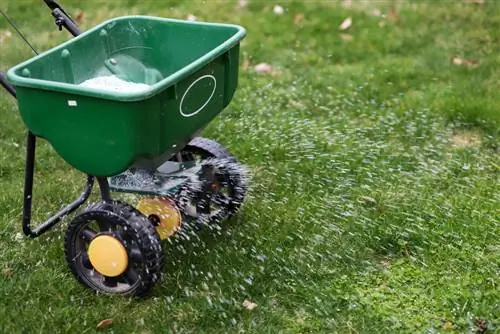
Why and when should you whitewash a horse pasture?
Limeing a horse pasture promotes undergrowth, inhibits weeds, counteracts soil acidification and kills pasture parasites. The best time to do this is before the grazing season, ideally March and April. However, a soil analysis should be carried out beforehand to check the nutrient and pH value.
Benefits of liming
The use of lime nitrogen, which is also fertilizer, is recommended for liming a horse pasture. But it not only fertilizes the pasture, but also fulfills other functions:
- promotes the undergrasses
- inhibits the growth of weeds
- counteracts soil acidification
- kills pasture parasites, e.g. B. Tapeworm eggs
Tip
Limetic nitrogen prevents the pH value from falling. However, if this is very low, it can be raised better with a single dose of carbonated lime. Under no circumstances should you increase the amount of lime nitrogen on your own, as this would also unfavorably increase the amount of nitrogen.
Best time for application
Before the start of the grazing season, fertilization, liming and any necessary reseeding should have been carried out. The months of March and April are good for this work. However, pure liming to increase the pH value can be done earlier. Even if the ground is still frozen or there is snow.
Carry out soil analysis beforehand
You should carry out a soil analysis approximately every three years. Only then will you know with certainty whether liming the horse pasture makes sense. The nutrient composition can also be improved through targeted fertilization.
Liming in practice
When dosing, follow the manufacturer's instructions. You have to expect around 300-400 kg of lime nitrogen per hectare.
The soil should be moist, but the turf should be dry. It is ideal if light rain follows and no sunshine is expected. If the aim is to combat the extensive spread of clover, lime nitrogen can also be spread on dewy soil. This makes it even more effective.
Precautionary measures
At the time of application, calcium cyanamide contains toxic ingredients, which later decompose. When using it, you should therefore definitely protect your hands with gloves and your lungs with a respiratory mask. Avoid alcohol for a while as it can increase the toxic effects. The horses are not allowed to go out to pasture for about two weeks afterwards.

